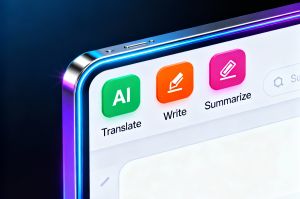 Which Android phones are better than the iPhone 16?
Which Android phones are better than the iPhone 16?
Ok, so Apple presented the next, 16th, lineup of iPhones at the “It’s Glowtime” event on September 9, 2024. They look gorgeous, you have to admit that, and promise flawless operation and immaculate photos. Are there Android-powered phones that can compete with them? Let’s take a look at the models that their makers have positioned as iPhone rivals for 2024. The suggested rivals of Apple's phenomenon are Samsung Galaxy S24 Ultra, Google Pixel 9 Pro XL, and OnePlus 11. Each of them is better than iPhone in at least one aspect, be it camera, AI prowess, or battery life and fast charging. None of them runs on iOS, though, which is a dealbreaker for many.
Samsung Galaxy S24 Ultra
Samsung is actually a major manufacturer of electronics, so, while competing with Apple in the domains of smartphones and tablets, it also supplies the Cupertino company with camera modules, display panels, memory chips, and batteries. The Korean giant doesn’t forget its own lines, of course, where the current iPhone rival is the Galaxy S24 Ultra. So what’s better in this phone?
Camera. The Galaxy S24 Ultra features a 200MP main camera, which is significantly higher than the iPhone's 48MP main sensor. It also includes multiple telephoto lenses that enable superior zoom capabilities.
Display. The display of Galaxy S24 Ultra is slightly smaller (6.8-inch, QHD+ AMOLED), but it offers a higher pixel density (501 ppi) compared to the iPhone's 460 ppi, which means better clarity and detail.
Battery life. The Galaxy S24 Ultra has a 5,000 mAh battery, which is larger than even the iPhone 16 Pro Max's 4,676 mAh power source.
Google Pixel 9 Pro XL
First launched in 2016, Google Pixel phones have not always been explicitly positioned as direct rivals to iPhones, but they were consistently positioned as top-shelf smartphones, a niche where Apple's offerings dwell. Moreover, from the outset, Pixels emphasized their camera capabilities, some of them backed by Night Sight and HDR+, proprietary software features. Today, this line by Google clearly competes with iPhones in the premium segment, seeking to win the hearts and minds of those who have not joined the cult of Apple.
AI-powered picture enhancement. The Pixel series is known for its exceptional software experience and AI capabilities in photography. The Pixel 9 Pro XL is expected to excel in computational photography, one of the selling points on the iPhone 16’s list.
Display. The Pixel 9 Pro XL features a slightly lower resolution than the aforementioned S24 Ultra, but its high-quality LTPO OLED display still delivers excellent brightness and color accuracy easily rivaling those in Apple's products.
Pricing. The Google Pixel 9 Pro XL is generally more affordable than the iPhone 16 Pro Max, with the price difference, outside of sales campaigns, being about $100. This appeals to users seeking a better value option with premium features.
OnePlus 11
OnePlus, launched in 2014, started as a “flagship killer,” targeted at the techie crowd and offering high-end specifications at a lower price point compared to high-end phones, including iPhones. Gradually, the company began using top-shelf components, which closed the gap between OnePlus models and the phones on the premium shelf. Around 2020, the price went up to the same range with Apple’s phones, which means direct competition.
Performance. Equipped with the Snapdragon 8 Gen 2 processor and up to 16GB of RAM, the OnePlus 11 offers excellent performance for multitasking and gaming, although the iPhone 16’s A18 is expected to excel in benchmark tests.
Charging speed and battery capacity. OnePlus devices are known for their rapid charging capabilities: they can fill up from 0% to 100% in about 22 to30 minutes, depending on the model and conditions, with a 100W charger. The battery in the OnePlus 11 is 5,000 mAh, bigger than in any version of the iPhone16.
Pricing. Comparison of the OnePlus 11 vs iPhone 16, base models at regular prices, can be in favor of the former, which is generally about $100 cheaper than the latter.
All things considered, in the realm of Android phones, there are some very decent offerings that easily take on iPhones and win, in some aspects, at least. What would be your choice? Is there a phone out there that should be added to this list? Let us know in the comments below.



